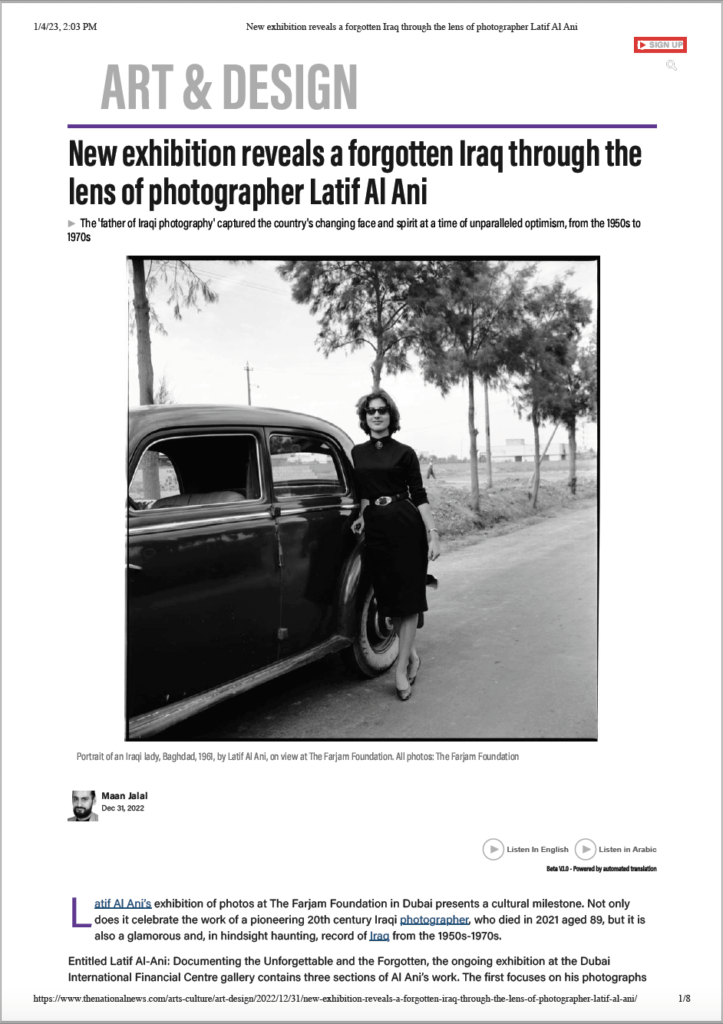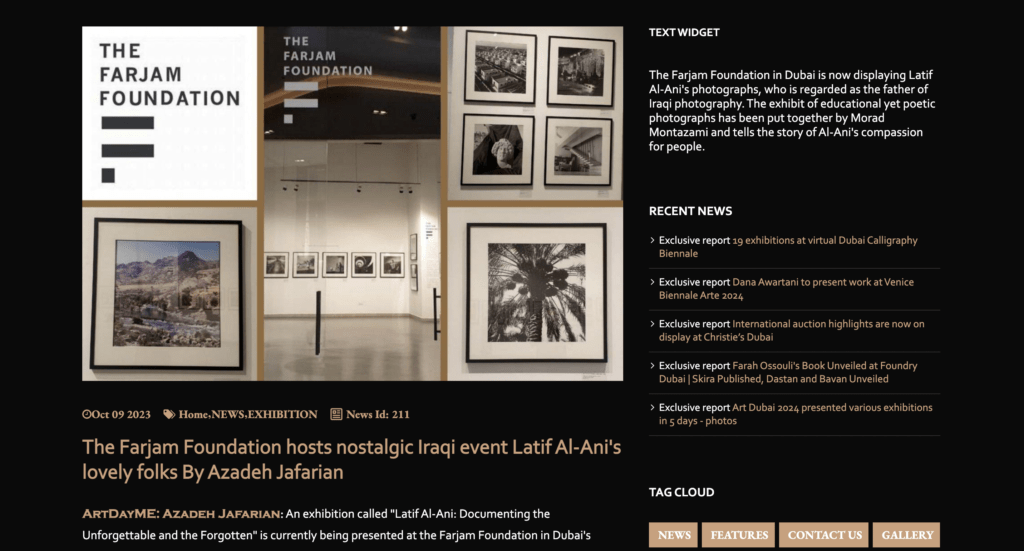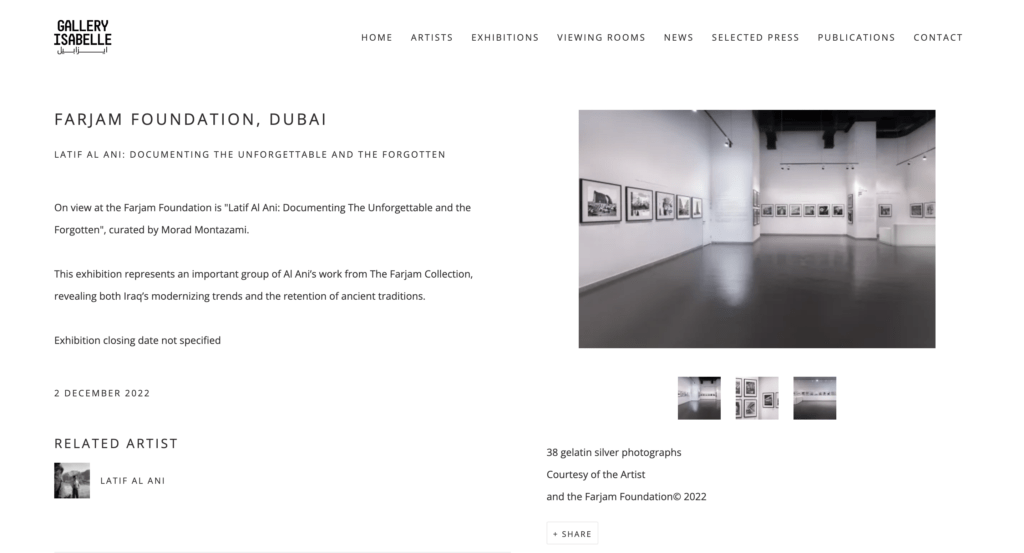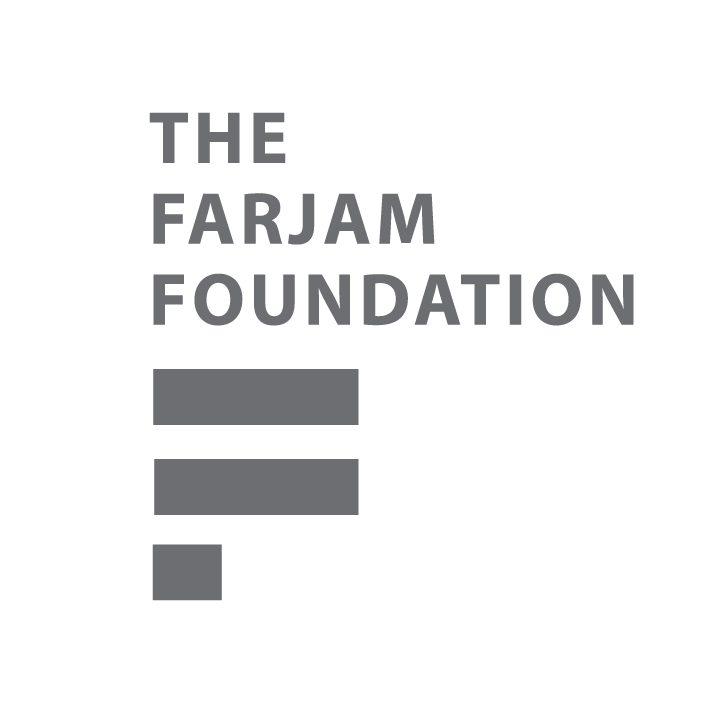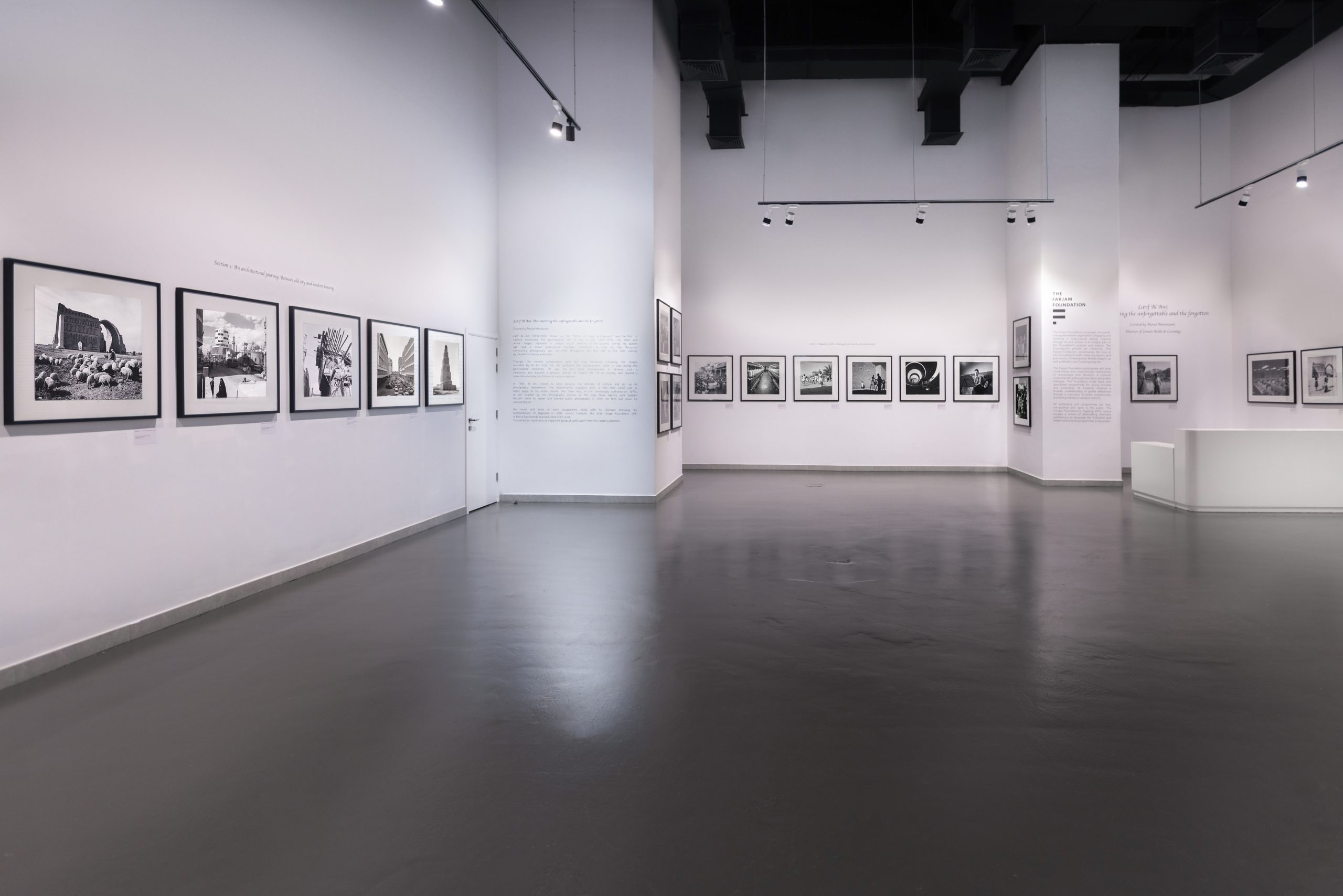November 15, 2022 – February 2024
Curated by Morad Montazami
Latif Al Ani (1932-2021) known as the “father of Iraqi photography” was the first to capture extensively the cosmopolitan life of Iraq in the 1950s-1970s. His black and white images represent a unique visual memory of the country during its golden age and a major postcolonial heritage. Introduced in Iraq by the Armenian community, photography was controlled throughout the first half of the 20th century by the British colonial authorities.
Through the intense collaboration with the Iraq Petroleum Company, the images recorded by Al Ani from the 50s symbolize the socioeconomic boom in Iraq during the post-colonial monarchy. He was the first local photographer to develop such a viewpoint, and arguably a genuine “painter of modern life” of his country, well beyond a mere documentary practitioner or a photo-reporter.
In 1960, Al Ani moved to what became the Ministry of Culture and set up its photography department. The department’s magazine bore a title that could just as easily apply to his entire oeuvre: the ‘New Iraq’. In the increasingly authoritarian 1970s, Al Ani headed up the photography division at the Iraqi News Agency until Saddam Hussain came to power and banned public photography in 1979. He then laid down his camera forever.
His name and body of work disappeared along with his archives following the bombardment of Baghdad in 2003. Luckily however, the Arab Image Foundation (AIF) in Beirut had already acquired some of his work.
This exhibition represents an important group of Latif’s work from The Farjam Collection.

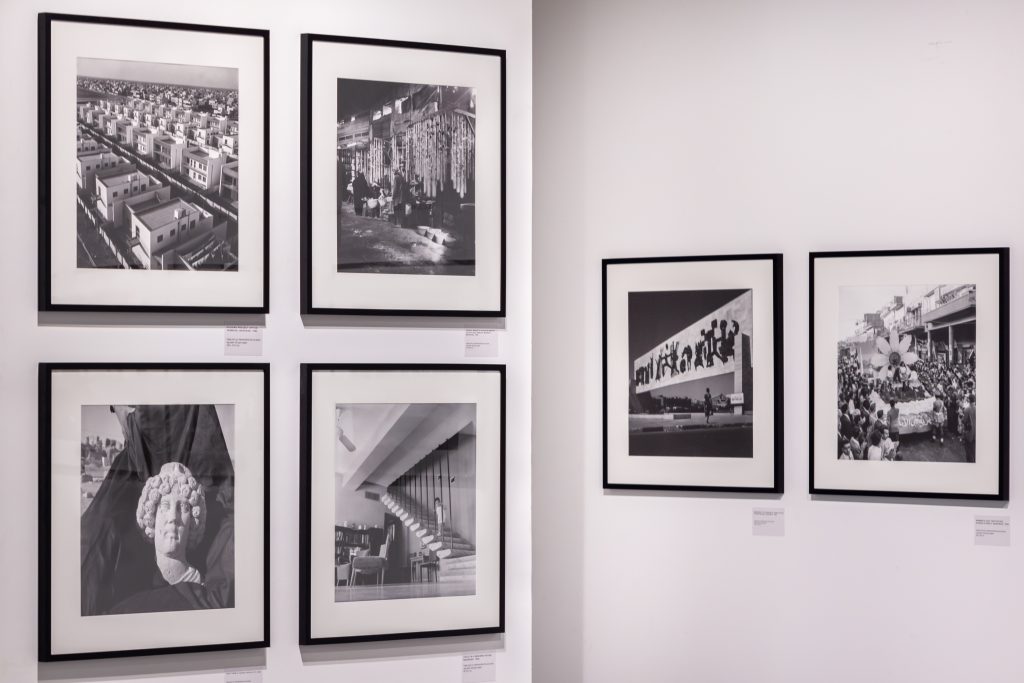
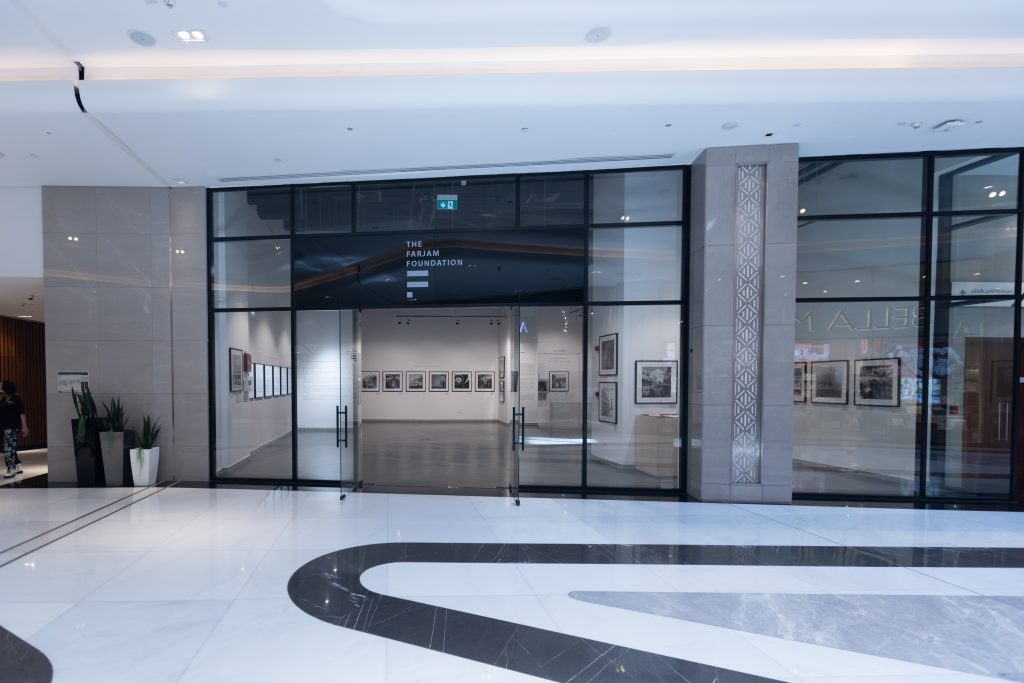
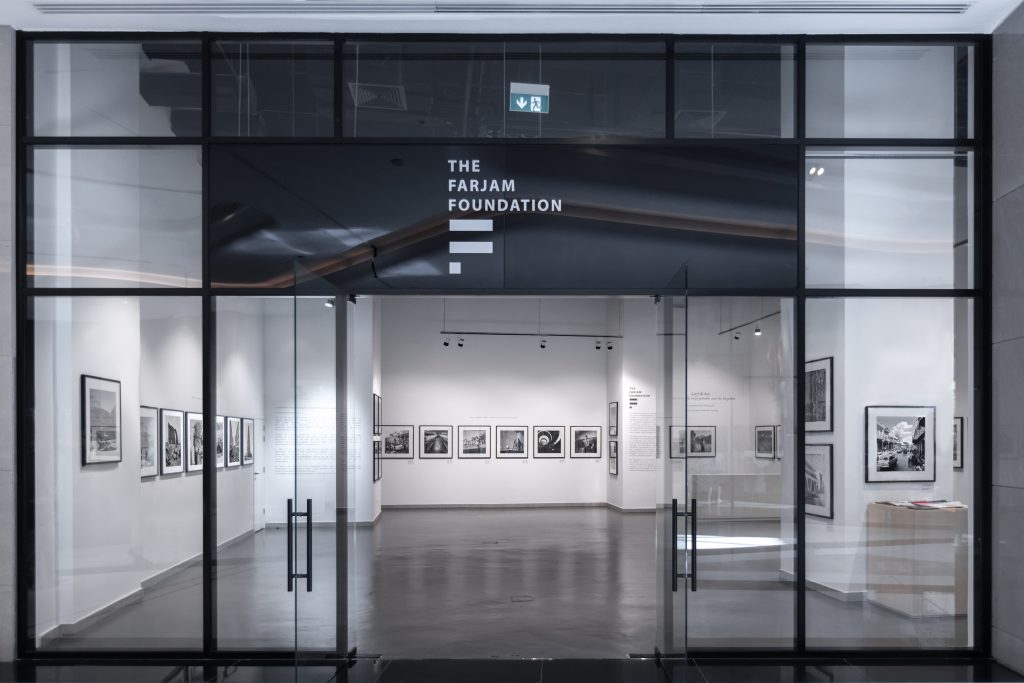
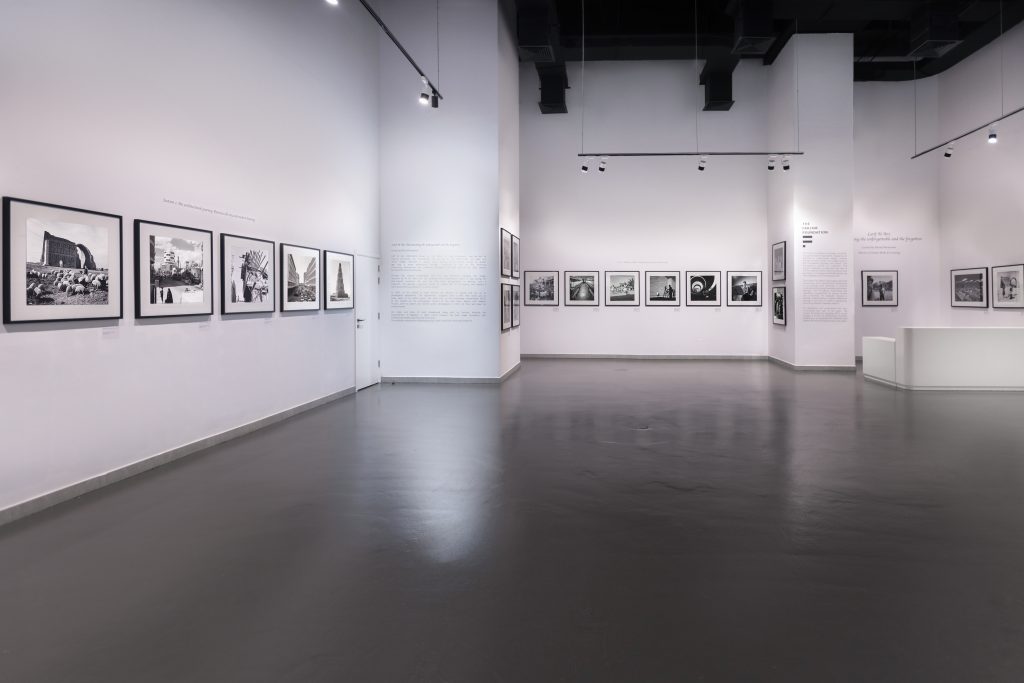
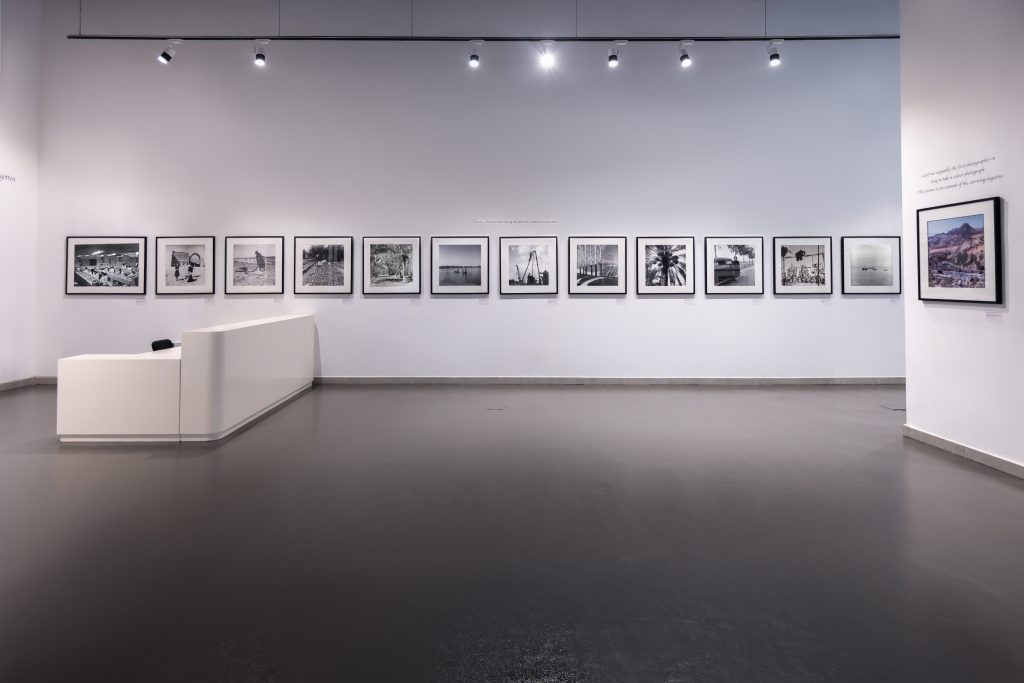
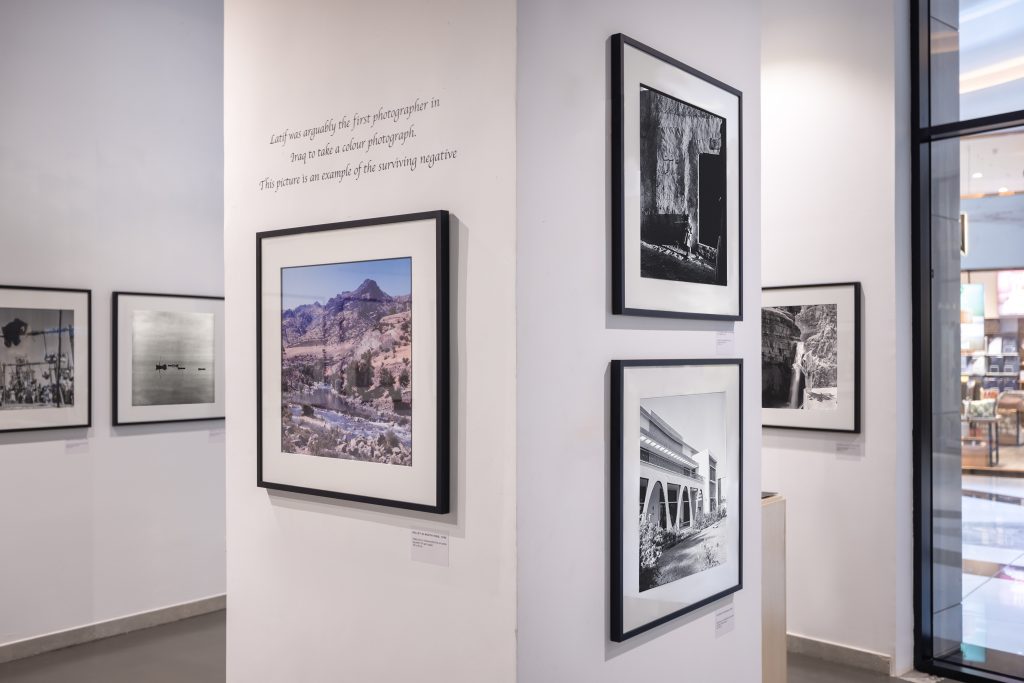
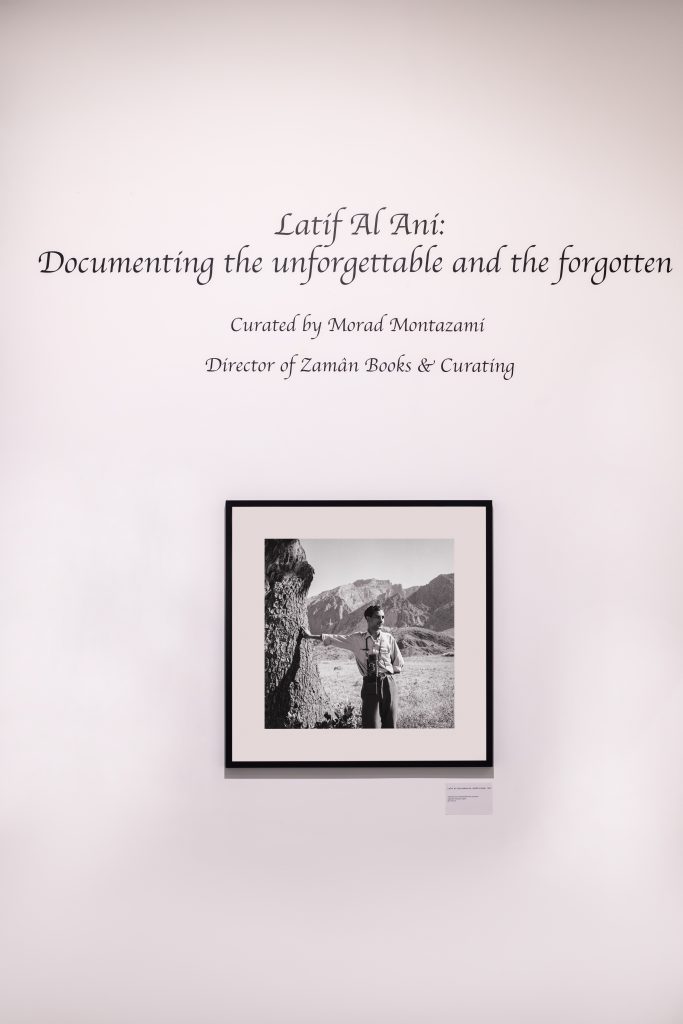
Media Coverage
